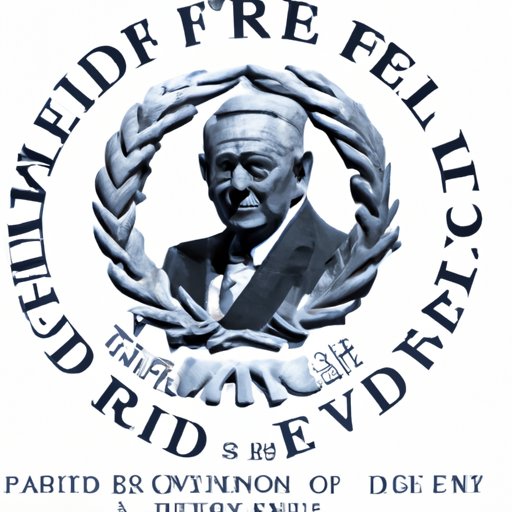Introduction
Franklin Delano Roosevelt (FDR) is often remembered as one of America’s greatest presidents. He served as president for an unprecedented four terms from 1933 to 1945 and is credited with leading the country out of the Great Depression and helping the United States win World War II. FDR was also a transformative figure who left behind a legacy that still resonates today.
But what made FDR such a successful leader? In this article, we will explore FDR’s leadership style, his vision and legacy, his ability to motivate and inspire, his political acumen, and his decision-making process. By examining these aspects, we can gain insight into the qualities that made FDR one of America’s greatest presidents.
Examining FDR’s Leadership Style
FDR had a unique leadership style that combined elements of both collaboration and independence. He was known for surrounding himself with talented advisors who could help him make informed decisions. “He didn’t hesitate to seek advice from others,” according to presidential historian Doris Kearns Goodwin. “He was very open to different points of view.”
At the same time, FDR was not afraid to act independently when he felt it was necessary. He had a strong sense of personal responsibility and believed in the importance of public service. “The only thing we have to fear is fear itself,” he famously declared during his first inaugural address, inspiring the nation with his unwavering optimism.
Exploring FDR’s Vision and Legacy
FDR is perhaps best known for his New Deal policies, which were designed to stimulate the economy and provide relief to those affected by the Great Depression. His programs created jobs, provided economic security, and helped millions of people get back on their feet. “The New Deal changed the role of government,” said historian David Kennedy. “It brought about a new social contract between the federal government and its citizens.”
FDR was also a visionary leader who had a long-term vision for the future of America. He pushed for civil rights reform, labor protections, and other progressive policies that laid the groundwork for the modern welfare state. He also championed international cooperation and worked to build strong relationships with other nations around the world.
Analyzing FDR’s Ability to Motivate and Inspire
FDR was a masterful communicator who understood the power of words. His speeches were filled with uplifting rhetoric that inspired hope and courage during some of the darkest times in American history. “In the early years of his presidency, FDR used language to rally the nation,” said speechwriter Robert Schlesinger. “He had a remarkable ability to connect with the American people.”
FDR was also adept at using humor to defuse tense situations and lighten the mood. “His wit was legendary,” said historian William Leuchtenburg. “He could make even the most serious issues seem manageable.”
Understanding FDR’s Political Acumen
FDR was a savvy politician who had a deep understanding of the inner workings of government. He had a knack for finding common ground between opposing sides and building consensus. “He was able to craft legislation that appealed to both Democrats and Republicans,” said political scientist Richard Neustadt. “He had a talent for bridging ideological divides.”
FDR also had a remarkable ability to persuade Congress to pass his agenda. He was a skilled negotiator who knew how to use the bully pulpit to get his way. “He was never afraid to use the power of the presidency to push through his initiatives,” said historian Alan Brinkley.
Investigating FDR’s Decision-Making Process
FDR was an analytical thinker who based his decisions on facts and data. He often consulted experts before making important decisions and was not afraid to ask tough questions. “He was always looking for the best information available,” said political advisor Harry Hopkins. “He was determined to make the right decision no matter what.”
FDR was also unafraid to take risks and innovate. He was willing to try new ideas and approaches if he thought they would be effective. “He never shied away from experimentation,” said historian John Garraty. “He was always looking for ways to improve the system.”
Conclusion
FDR was a transformational leader who left behind a lasting legacy. He was a masterful communicator, a savvy politician, and an analytical thinker. He was unafraid to take risks and was committed to public service. These qualities are what made FDR one of America’s greatest presidents.
FDR’s example teaches us the importance of having a clear vision, working collaboratively, and making decisions based on facts and data. His legacy serves as a reminder that leaders must be willing to take bold action and think outside the box in order to make meaningful progress.
(Note: Is this article not meeting your expectations? Do you have knowledge or insights to share? Unlock new opportunities and expand your reach by joining our authors team. Click Registration to join us and share your expertise with our readers.)
